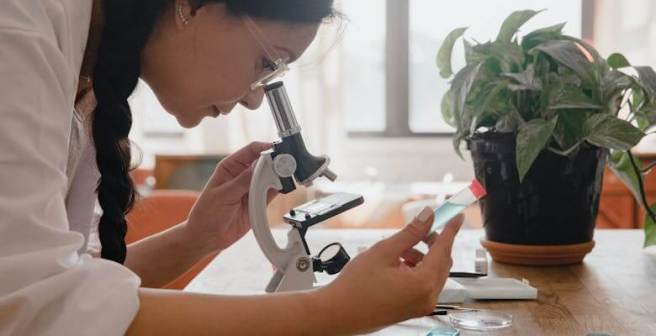Fostering brilliance: a lab director’s guide to inclusivity

Science is a global pursuit that unites researchers from diverse backgrounds. Many labs host researchers from different locations worldwide. We are all unique in our culture, tradition, religion, and gender. While everyone should respect these differences that shape who we are, they also make us vulnerable to unconscious biases. Often, people favor someone who has a similar background, speaks the same language, has the same faith, etc. However, no workplace, including a scientific institute, should be doing that.
In the dynamic realm of science, diversity, equity, and inclusion aren’t just virtues; they’re catalysts for heightened productivity and creativity. However, just aiming for diversity without building an inclusive and equitable environment might not lead to excellent outcomes. Drawing parallels to the global success of Nobel Prize-winning countries with diverse science immigrants, in her editorial piece in PNAS, Marcia McNutt underscores the necessity for inclusive environments. She also cautions us, saying, “Concerns are already being voiced that young scientists are finding the United States unwelcoming to foreigners and that they are discovering more attractive opportunities overseas.”
Simple habits of maintaining a lab where the work is enjoyable, and everyone is treated with empathy and kindness help build an environment that could be open to all. Positive criticism, instead of disdainful remarks, can strengthen the foundation of a lab. Mistakes and failures are part of life, and a scientific career is nothing different. A team leader must clarify this and help people understand how to own up to their mistakes. Another vital feature of a good lab director is being approachable to all — this helps maintain transparency and open communication in lab work.
Lab directors or PIs can promote inclusivity in the lab in multiple ways.
Here are nine directives:
-
Dissemination of Information: Beginners from abroad should be provided with information on the local healthcare system, employment rules, housing markets, etc., when they start their journey in a new place.
-
Look Beyond Lab Meetings and Journal Clubs: Scheduling regular lab meetings helps present a forum for discussion among all lab members. However, lab meetings and journal clubs must not be just about presentations. They should provide a platform for every lab member to express their thoughts.
-
Set Communication Rules: Miscommunication and language misuse can cause significant communication issues. To curb these, the best thing to do is to set strict rules regarding language usage and how to communicate with other lab members.
-
Stay Attentive and Intervene: While establishing rules is easy, following them is more important. Staying vigilant and participating in conversations among members will help you intervene when you sense things might go wrong.
-
Foster Collaborations and Independence: Teamwork and independent work are two sides of the same coin. Honing both these skills is crucial for a researcher. Building collaborations in and outside the lab not only helps improve the research you’re doing but also instills knowledge, empathy, and communication skills. Similarly, it’s important to let people work independently to figure out things unless you want them to act as tools and not be creative and confident in their work.
-
Enhance One-on-One Meetings: Create a safe space for lab members to chat in one-on-one meetings with you. Rather than making these meetings all about data reporting, it might be beneficial to really “talk” to each other. These discussions could help address issues early on.
-
Promote Equitable Growth for All: Equitable growth is vital to the success of all lab members. When you favor someone over another in a shared space, as a lab director (or someone with authority), you send a message among all members that some people are considered better than others. It is something that most lab members will pick up and get used to during their regular work. Being mindful of not demonstrating favoritism is a must for group leaders. Lab directors should also help arrange training programs for the members, including special training programs for foreign researchers to understand the local language, culture, etc.
-
Make Space for Fun: Game nights and retreats help you bond with each other. Apart from doing science, what is more important is having a healthy relationship with a fellow lab member. The casual atmosphere of events, such as dinners, game nights, and retreats, make these excellent team-building exercises.
-
Don’t Forget to Ask for Feedback: Although this is the most essential aspect of one’s research journey, we often forget to ask for feedback. Feedback helps you improve your lab and create a better workspace. So, whenever possible, talk to the members about what you can do better to promote equity and inclusivity in your lab — you’ll get the best tips that no cheat sheet can provide you with!
Notably, although foreign researchers often feel the need to merge into a new culture and place, eliminating the uniqueness is not always required. This might even allow foreigners an edge over others to start a conversation. As someone with authority, group leaders must always maintain an atmosphere where foreign researchers do not need to fit in and toss away their individuality. An open mindset to welcome people from different backgrounds can work wonders for a lab.
Not only scientific labs but even other organizations have benefitted from diversity and inclusion, according to a recent study at a business organization.
Resources for Lab Directors
Various activities can help lab directors become better prepared to support international students and postdocs in their labs. Workleap and Harvard Business Review provide some tips for moving forward. Universities and organizations worldwide have designed several courses and workshops to support lab leaders in creating an inclusive and equitable culture in their labs. As a group leader, you have the potential to make a difference in your lab today, supporting diversity and fostering a collaborative global scientific community.









